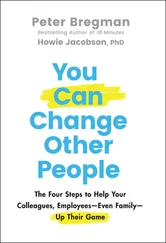‘It’s your opinions,’ his wife told him, watching in distaste as he banged at his thorax in the vain hope of dislodging whatever was stuck inside him. ‘It’s your hateful nature paying you back. To speak like that, about your own daughter!’
‘People don’t have it in for you for no reason,’ he persisted.
‘Not another word,’ his wife said. ‘Not another word or I swear I’ll cut your chest open with a breadknife.’
The Nussbaums had been having this argument all their married lives. Their mangled daughter was just another opportunity for them to rehearse it all again, their understanding of the universe, what they did or did not believe. What Compton Nussbaum believed was that what happened happened for the best of reasons, there was no effect that didn’t have a cause, what people suffered they had brought upon themselves. What Rhoda Nussbaum believed was that she was married to a pig.
‘Have you never been sorry for anyone?’ she asked him.
‘What good would my sorrow do them?’
‘That’s not an answer to my question. Do you never feel another person’s pain?’
‘I feel satisfied when I see justice done.’
‘What about injustice? What about cruelty?’
He banged his chest. ‘Sentimentality.’
‘So if I go out and get raped. .?’
‘It will be your own fault.’
‘How so? For being a woman?’
‘Well I won’t be going out and getting raped, will I?’
More’s the pity, she thought.
You don’t see your daughter lying as good as dead and blame her for it, Rhoda Nussbaum believed. If I were to kill my husband for what he has just said I would be cleared by any court in the country. The only argument she could see for not killing her husband was that she’d be proving him right — yes, people do get what they deserve.
He’d been a civil servant. ‘ Servant gets it,’ Rhoda Nussbaum would say when he refused to hear a word against those who employed him. He was proud when his daughter gained early promotion at Ofnow, but turned against her when she turned against it.
‘I’m only asking questions,’ she would cry in her own defence.
‘Then don’t,’ was his fatherly reply.
She should have found a man and left home for him. But the men she met were like her father. ‘Then don’t,’ they’d say. And the one thing they didn’t say no about, she did.
Her mother encouraged her. ‘They’re all no good,’ she said. ‘Stay here with me.’
That suited her. She liked her mother and could see that she was lonely. It helped, too, that she was not sentimental about men.
Her father thought she was a lesbian. Many men thought the same. There was something uncanny about her, the seriousness with which she took her work, her obduracy, her pedantry, the size of her vocabulary, the lack of bounce in her hair, the flat shoes she wore, her failure often to get a joke, her unwillingness to play along, her way of overdoing sympathy as though understanding beat snogging. But only her father hated her in his heart. Her being a lesbian was a denial of him. And also, by his own remorseless logic, meant that he was being punished. He didn’t know what for, but you don’t get a lesbian for a daughter unless you’ve done something very wrong indeed.
He’d have preferred it had she not come out of the coma.
‘You will not tell her she only got what she deserved,’ his wife said on the eve of their daughter’s removal from the hospital. ‘If you want to live an hour longer you will not say it’s your own stupid fault.’
He stood at the front door, waiting for the ambulance to arrive. A ball of something even more indigestible than usual was lodged inside his chest.
‘Welcome home,’ he belched when she was stretchered in. She raised her hand slightly and gave him a faint wave.
I’m doing well, he thought. I’m handling this OK.
Esme thought the same. Not about him, about her. I’m being good. But she knew she’d never be able to keep it up. She’d have to tell him soon enough how wrong he had always been about everything.
Her mother nursed her like a grievance.
‘My little girl,’ she crooned over her.
Esme told her to stop. She was getting better. In some respects she felt better than she’d ever felt before. Her mother worried that that meant she was preparing to embrace the life of a permanent invalid. But then there was a secret corner of herself that was willing to embrace the life of a permanent nurse. Feed her daughter soup, kill her husband, put up the shutters, smell him rot and hope not to see daylight again.
Esme had never moved out of her parents’ house so she was back in her old room. Yet it felt as though she’d been away all her adult life and was revisiting the sanctum of her childhood for the first time in decades. It was the lying down that did that. Lying down and seeing words jerk about above her head. Can one ever return to bed for a long period and not be reminded of being a child? Even the books on her shelves and the magazines on the chest of drawers, bought just before she was run over, even her newest clothes, seemed to belong to a much younger her. Where had she been in the intervening years?
Her mother caught her weeping once. ‘Oh, my little girl,’ she cried.
‘Cut that out!’ Esme said. ‘I’m not in pain and I’m not sad. I’m just missing something.’
‘What?’
‘The last fifteen years of my life.’
‘You haven’t been here that long, darling.’
‘I know that. I just can’t think what I did with them before.’
In a few weeks she was able to lever herself up by her arms. It would be longer before she could walk, but there was no hurry. Physiotherapists visited her and were disappointed by her slow progress. ‘She’s regaining strength,’ they told her mother, ‘but she doesn’t seem to have the will to be up and about.’
She wasn’t worried about it herself. She still had a lot of thinking to do. Once she was out of the coma her thoughts did not fly at her. She missed that, as people from the country miss birdsong when they move to town. She had to call words to her now. She had to start at the beginning of an idea and puzzle it out. It was like following one end of a ball of thread, uncertain where it would lead her.
Her mother fretted. ‘Why are you so quiet?’
‘Thinking.’
‘You’ve had a lot of time to think.’
‘You can’t have too much.’
Can’t you? Her mother wasn’t sure.
But her father liked her like this. He took it for remorse. Any minute now he expected her to announce that the accident had killed off her lesbian tendencies.
‘What’s happening in the world?’ she asked one morning.
She had got herself over to the breakfast table to join her parents.
‘The usual,’ her mother said. ‘Births, marriages, funerals.’
‘What would you have instead?’ her husband asked her.
‘Something less horrible.’
‘We make our beds, we lie in them,’ Compton said.
Esme looked from her father to her mother, and back. How long had marriage been a horror to them both? From the first moment of their marrying, forty years before? Had they recoiled from each other even as they exchanged vows? She had never heard them speak lovingly of a time when they didn’t dislike each other intensely. So why had they married, and why hadn’t they parted? What was it that kept them together? The very magnetism of horror, was that it? The harmony that there is in hatred?
She suddenly saw them as a pair of evil planets, barren of life, spinning through space, in constant relation to each other but never colliding. Did a marriage obey the same unvarying law of physics as the solar system? And society too? Was this equipoise of antagonism essential?
Читать дальше












